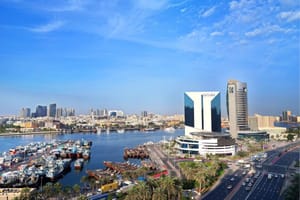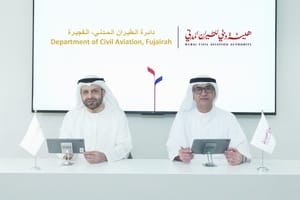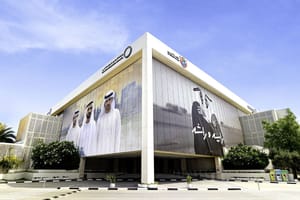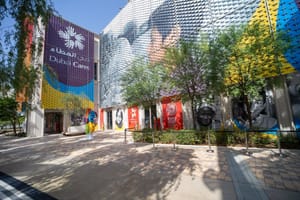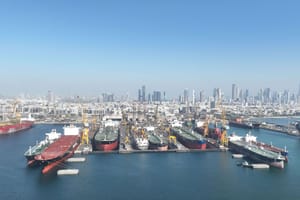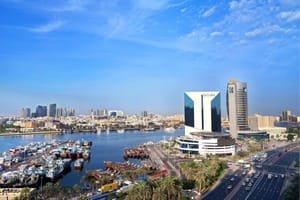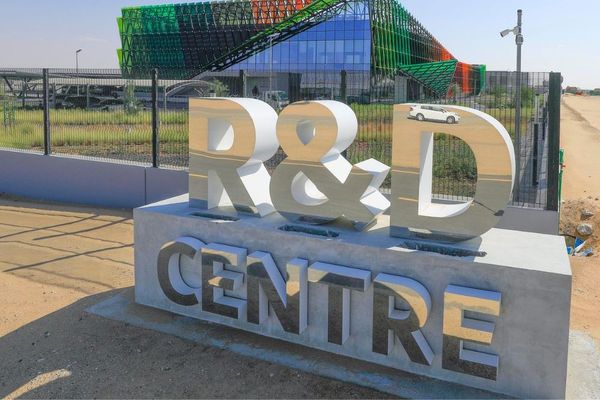Major clean and renewable energy projects are being implemented
When launching the Dubai 2040 Urban Master Plan, His Highness Sheikh Mohammed bin Rashid Al Maktoum, Vice-President and Prime Minister of the UAE and Ruler of Dubai, announced plans to make Dubai the ideal city for urban living by providing world-class facilities.
According to the plan, the number of Dubai residents is expected to reach 5.8 million by 2040, while the daytime population is set to increase to 7.8 million in 2040.
Saeed Mohammed Al Tayer, CEO and Managing Director of Dubai Electricity and Water Authority (DEWA), said the company is guided by the vision and directives of Sheikh Mohammed to keep pace with Dubai's ambitious urban plans.
"We do that through planning that is based on the latest future-shaping tools," he said. "Electricity and water infrastructure expansion plans are based on demand expectations until 2030, considering the demographic and economic growth in the emirate."
Here are six projects the emirate is undertaking to change the way residents will live in the future:
1. Largest single-site natural gas power generation facility in the world
Dewa's Jebel Ali Power and Desalination Complex is one of the key pillars to provide Dubai with high-quality, efficient and reliable electricity and water services.
The complex has been confirmed by Guinness World Records as the largest single-site natural gas power generation facility in the world at a capacity of 9,547 MW. The complex comprises two main plants for power generation and water desalination. Plant-1, with a production capacity of 2,761 MW, consists of stations D, E, and G. Plant-2, with a production capacity of 6,786 MW, consists of stations K, L, and M.
2. Mohammed bin Rashid Al Maktoum Solar Park
The Mohammed bin Rashid Al Maktoum Solar Park, which Dewa is implementing, is the largest single-site solar park in the world, using the Independent Power Producer (IPP) model. It will have a production capacity of 5,000MW by 2030 with a total investment of Dh50 billion.
Upon its completion, the Solar Park will reduce more than 6.5 million tonnes of carbon emissions annually. The current capacity at the Solar Park is 1,527MW using solar photovoltaic panels. Dewa is implementing more projects with a total capacity of 1,333MW using solar photovoltaic and Concentrated Solar Power (CSP). The clean energy share is currently around 11.4 per cent of Dubai’s energy mix and is expected to reach 14 per cent by the end of 2022.
3. Hydroelectric power plant in Hatta
Dewa is currently building a 250MW pumped-storage hydroelectric power plant in Hatta. The plant’s production capacity is set to reach 250 megawatts with a storage capacity of 1,500 megawatt-hours and a lifespan of up to 80 years.
This is the first of its kind in the Gulf region, with investments of around Dh1.421 billion. Turbines operated by the speed of the waterfall from an upper reservoir through a 1,200-meter water tunnel will be used to generate electricity, with high efficiency in power generation and storage of up to 78.9 per cent and with a 90-second response to demand for electricity.
4. Smart Grid
The Smart Grid is a key component of Dewa's strategy to develop an advanced infrastructure to support the Smart Dubai initiative. The Smart Grid features programmes with investments of Dh7 billion up that are completed in the short, medium, and long-term until 2035.
5. The Green Charger for electric vehicles
Through the ‘Green Charger’ initiative, Dewa currently provides more than 325 charging stations for electric vehicles across Dubai. It is working to increase this number to reach over 1,000 stations by 2025.
6. Digital Dewa
Dewa is shaping a new digital future for Dubai through Digital Dewa, its digital arm. Through this initiative, Dewa aims to become the world’s first digital utility to use autonomous systems for renewable energy and storage, while expanding AI and digital services.
Digital Dewa is based on four pillars to provide a new experience for utilities worldwide. The first pillar is launching advanced solar power technologies. The second deploys a renewable energy grid with innovative energy storage technologies. The third is expanding integrated AI solutions to make Dubai the first city to provide AI-based electricity and water services. The fourth pillar includes obtaining the highest-possible benefits from the connected technologies enabling 24/7 world-class services delivery for Dubai, improving UAE’s digital capabilities to develop smart cities, and providing innovative state-of-the-art solutions.
News Source: Khaleej Times


